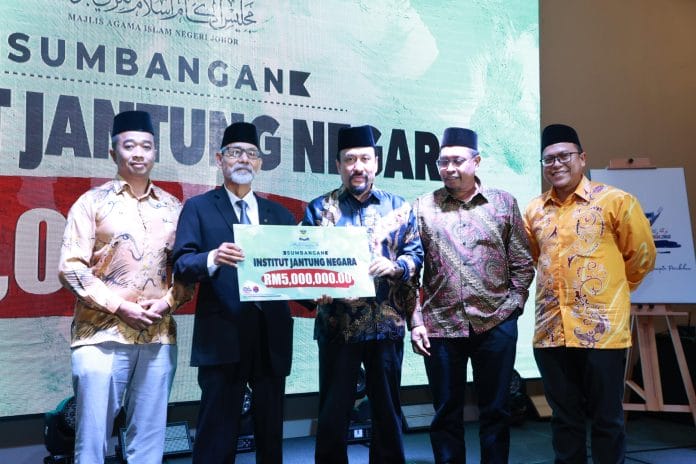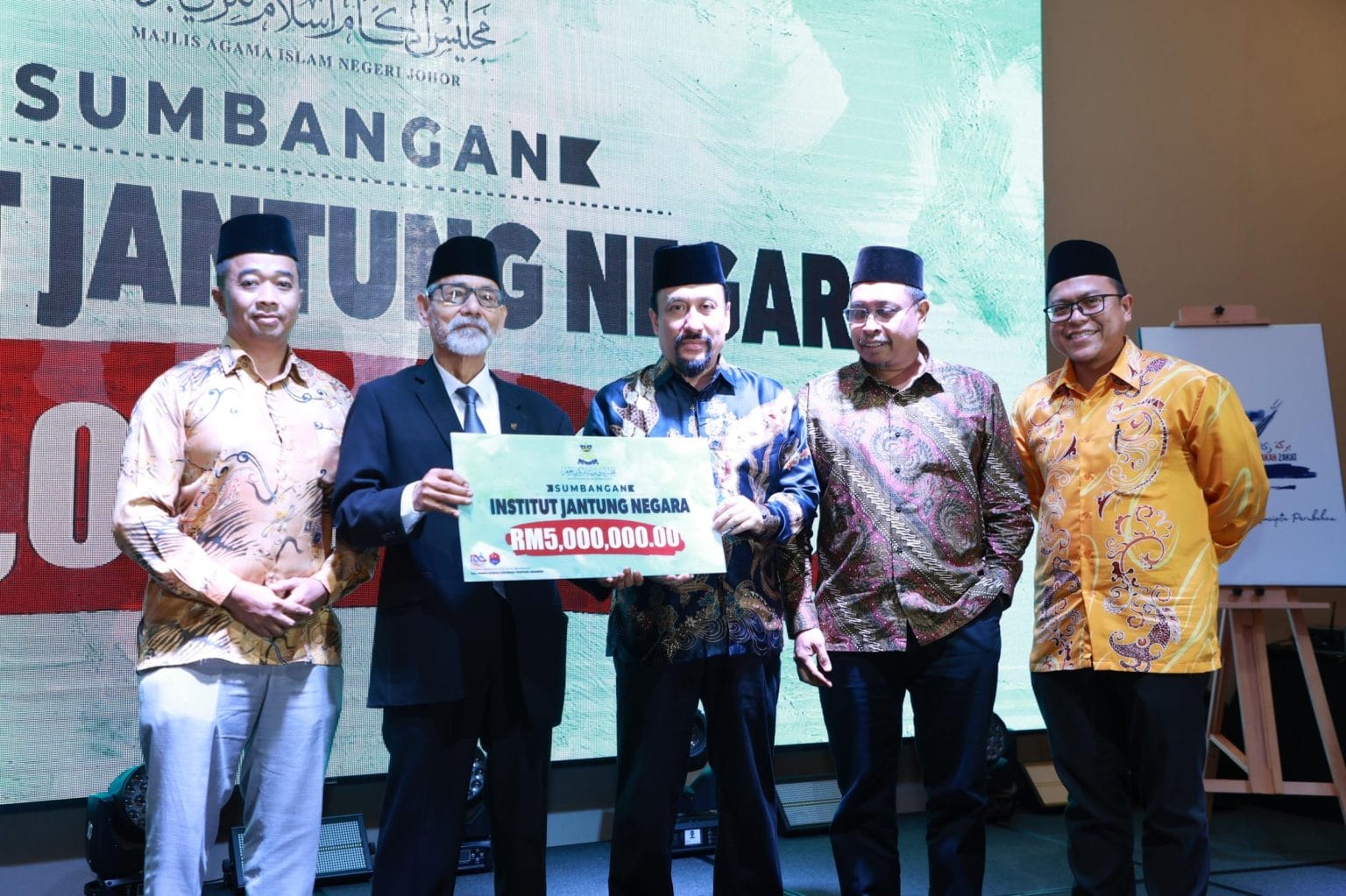IJN Receives RM5 Million Zakat To Aid Johor Heart Patients

Institut Jantung Negara (IJN) has received a RM5 million zakat contribution from Majlis Agama Islam Negeri Johor (MAINJ) to assist asnaf patients from Johor requiring heart treatment.
The contribution, announced during MAINJ’s Majlis Pelancaran Program Barakah Zakat 2025 in Johor Bahru, will be channelled over five years from 2025 to 2029. The funds will cover treatment costs for eligible patients, including surgeries, cardiac devices, medications and follow-up care. The contribution was received on behalf of IJN by Deputy Chief Executive Officer Dato’ Akmal Arief Mohd Fauzi.
The partnership between MAINJ and IJN, which began in 2017, has now entered its eighth year. Total contributions have exceeded RM6 million to date, benefiting more than 1,100 Johor patients. In 2025 alone, over RM1 million was allocated to support treatment for 120 patients.
Patients eligible for assistance are identified under the asnaf category through IJN’s Patient Financial Services unit in collaboration with MAINJ. IJN’s officers are trained and recognised as authorised zakat assessors, ensuring that funds are disbursed efficiently and transparently. The programme covers hospitalisation, surgical procedures, essential cardiac devices such as stents and pacemakers, medications and post-operative care.
“This new commitment will ensure that no patient is denied lifesaving treatment because of financial constraints,” said Dato’ Akmal Arief Mohd Fauzi. He added that the mechanism allows for accurate verification and documentation, enabling prompt distribution of zakat funds to those in need.
MAINJ’s healthcare zakat assistance reflects its mission to uplift the well-being of the Johor Muslim community, ensuring equitable access to quality healthcare. Beyond IJN, the council also provides funding for medical equipment and treatment subsidies to hospitals across Johor.
The MAINJ–IJN collaboration demonstrates the effectiveness of joint initiatives between a national healthcare institution and a state zakat authority in reducing financial barriers to treatment. It highlights how structured zakat programmes can contribute directly to better public health outcomes and equitable healthcare access.







